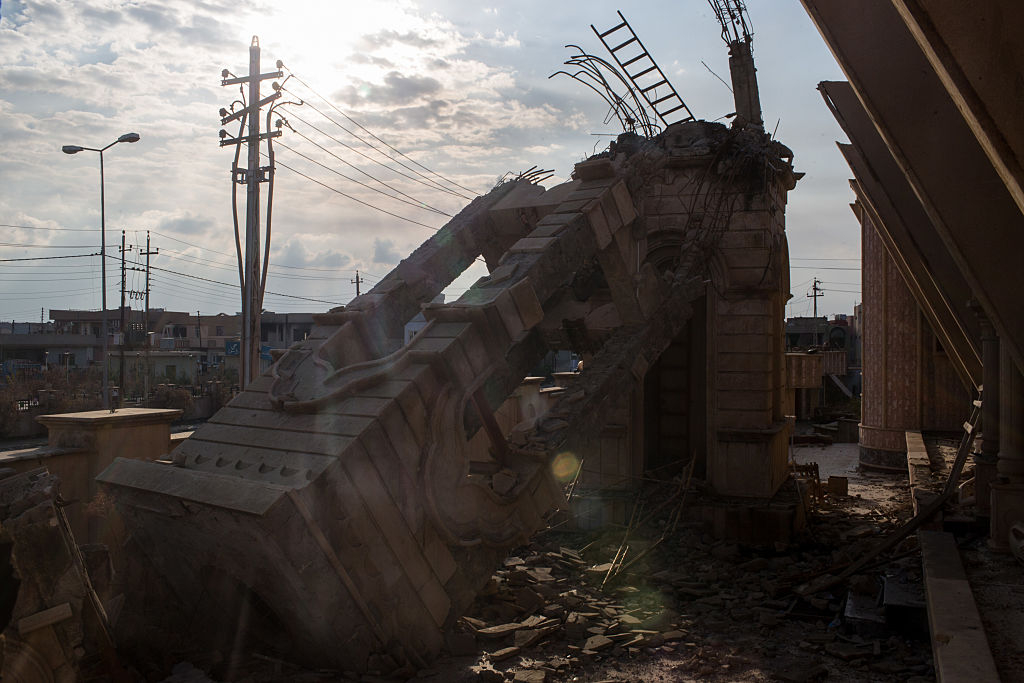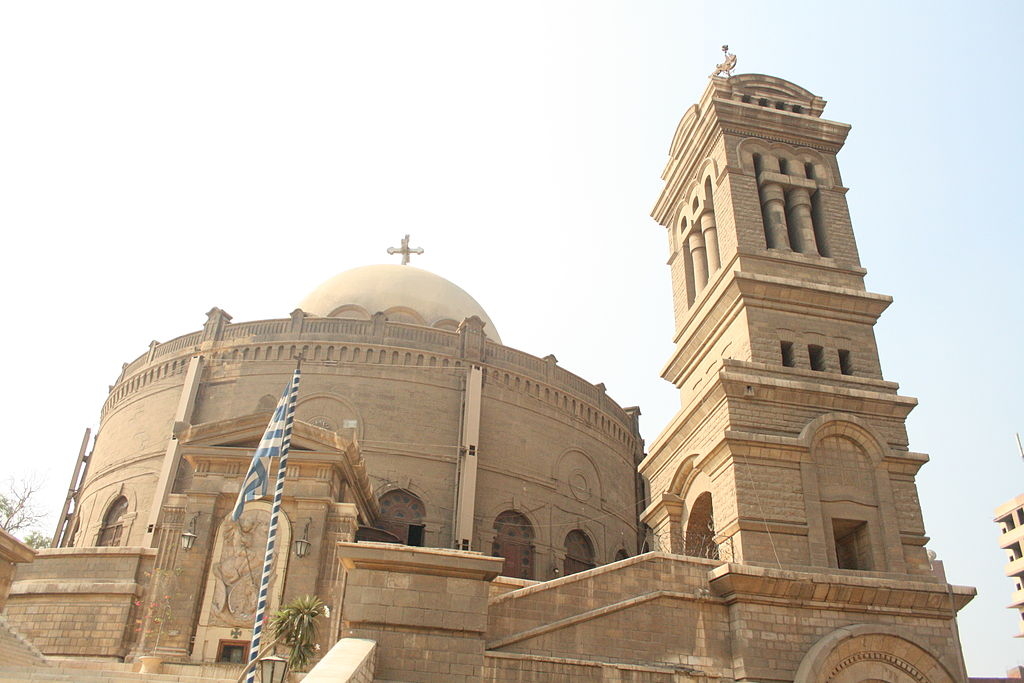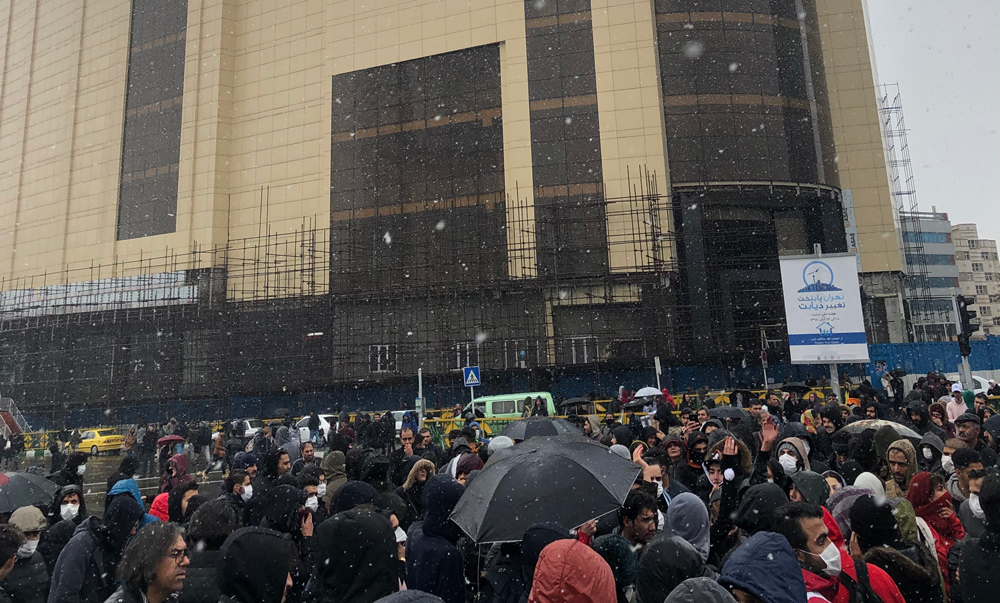In this mailing:
- Denis MacEoin: The Fate of Christians in the Current World
- Raymond Ibrahim: Egypt: Christian Churches Burn "Accidentally," or Have "Terrorists Changed Operations"?
- Amir Taheri: The Mullahs' Losing Game
by Denis MacEoin • December 8, 2019 at 5:00 am
Why should it be anti-Muslim or "Islamophobic" to write about the effects of jihad or the conservative Muslim treatment of unbelievers? The facts are well established within international bodies, NGOs, national commissions, and verifiable journalistic reports. Reformist Muslims themselves are highly critical of the discriminatory laws and behaviours in countries from which they or their forebearers originated.
Indeed, it is precisely Muslims of a reformist and liberal bent who are most vocal about radical restrictions on the values that other Muslims claim are universal.
Let us be clear. No doubt, there will probably always be people, call them the real "Islamophobes", who will use problems within Muslim states or communities to try to tar Islam or Muslims as a whole. But these and other issues still need to be faced as authentic human rights concerns.
A particularly widespread problem for Christians in Muslim countries is the ban on Christian proselytization.... While Christian and secular countries rightly permit Muslims to preach, convert, and instruct non-Muslims, 25 Muslim states forbid proselytization and have laws saying that Muslims who convert to another faith may be put to death as apostates.
Liberalized versions of Islam have in the past few decades been suppressed by fundamentalist takeovers of entire societies. It is therefore hard to believe that countries such as Iran, Saudi Arabia, or Turkey will return quickly to the moderation they had developed in the previous century. If there is hope for good relations between non-Muslims and Muslims, it must rest, as has already begun, with the Muslims in liberal democracies.... The British organization Muslims Against Antisemitism, is a shining example; in America, the American Islamic Forum for Democracy is another. They should be treasured and helped.

In the Middle East, Christians are being attacked and driven out at an unprecedented pace. Pictured: A church that was burned and destroyed by ISIS in the town of Qaraqosh, Iraq, photographed on December 27, 2016. (Photo by Chris McGrath/Getty Images)
A recognition of the religious freedoms offered by secular non-coercive states should be of particular importance to Muslims worldwide. It is a serious criticism of Islamic practice both historically and in the modern era that many Muslim countries seem to remain deeply intolerant towards the followers of other religions or the followers of differing branches of their own religion; toward people they regard as having left Islam, or even whom they perceive as having "offended" its followers, whether inadvertently or not. Persecution of religious minorities, and other Muslims seems common in many Muslim countries -- from the highly restrictive Saudi Arabia to the more liberal Indonesia, and especially in countries where the religion is closely allied to the state.
by Raymond Ibrahim • December 8, 2019 at 4:30 am
Preliminary reports from Egyptian authorities said that all three fires appeared to be accidents related to electrical or circuit failures, not arson.... General opinion among Christians, however, is that the fires were "not a coincidence."
"The fire started from the wooden ceiling of the adjacent hall." Video footage, he added, indicated that something from the market behind the church was hurled onto its roof. — Fr. Samuel, St. George Church in Mansoura, World Watch Monitor, November 11, 2019.
"Terrorists change their operations, from bombings to burning." — Fr. Ephraim Youssef, a priest at St. George Church in Mansoura, World Watch Monitor, November 11, 2019.

On October 13, a fire "completely destroyed" St. George Church in Helwan, considered "one of the greatest and oldest churches belonging to the Coptic Orthodox Church." (Image source: Diego Delso/Wikimedia Commons)
Recently, over the course of two weeks, three Christian churches were torched in Egypt.
First, on Sunday, October 13, "a massive fire swept through a major Coptic church in a Cairo suburb causing heavy damage, but no casualties." Online images and video of the St. George Church in Helwan — considered "one of the greatest and oldest churches belonging to the Coptic Orthodox Church" — confirm that , to quote Bishop Bishara, it "had been completely destroyed."
"I immediately rushed to the church and found it on fire with heavy smoke filling the place," said Fr. Andrew, who personally served at the church for three decades.
"The old wooden building burned down very fast and the fire destroyed everything inside, even before the firefighters arrived.... Our loss is great. We have lost a great historical building and we can't rebuild anything like it."
by Amir Taheri • December 8, 2019 at 4:00 am
After initial hesitations the elite regained its unity by responding in the best way it knows, not to say the only way it knows: a brutal crackdown that claimed hundreds of lives and over 10,000 arrests.
Translated into simple terms, Khamenei is calling on the "prosperous 30 percent" not to take their current well-being for granted and to help the regime crush the mass of the poor who wish to upset the apple cart.
The danger to [the Shah's] regime came from urban middle classes that in any society do not remain content with economic prosperity and social freedoms for long; they always end up demanding political rights commensurate with their economic and social status.
[I]f he [Khamenei] manages to crush the 70 percent, thus removing their threat, he would face the 30 percent's increasing demands for social and political freedoms no clerical regime can grant. And, if he fails, the 30 percent in question will look for someone else who can do for them what the Khomeinist regime cannot. In either case, the "Supreme Guide" is playing a losing game.

Almost no one in Iran's ruling establishment bothered to ask why so many Iranians were prepared to risk their lives to make their voices heard and what could the regime do to address their grievances. Pictured: An anti-regime protest in Tehran, Iran on November 16, 2019. (Image source: GTVM92)
When popular protests erupted in Iran's top 100 cities, including the capital Tehran, last month, it soon became clear that the ruling elites were at pains to decide what was really going on.
The faction led by "Supreme Guide" Ali Khamenei started by dismissing the uprising as a déjà vu version of the protests that have punctuated Iran's history since the 1979 revolution. The daily Kayhan, reputed to reflect Khamenei's views, dismissed the uprising as "sporadic disturbances fomented by a handful of hooligans." Khamenei himself saw it as "a bump on the road" to the "Great New Islamic Civilization" he says he is building.
The official media dismissed what it claimed was "a blind riot with no leadership."
|
|
|
No comments:
Post a Comment